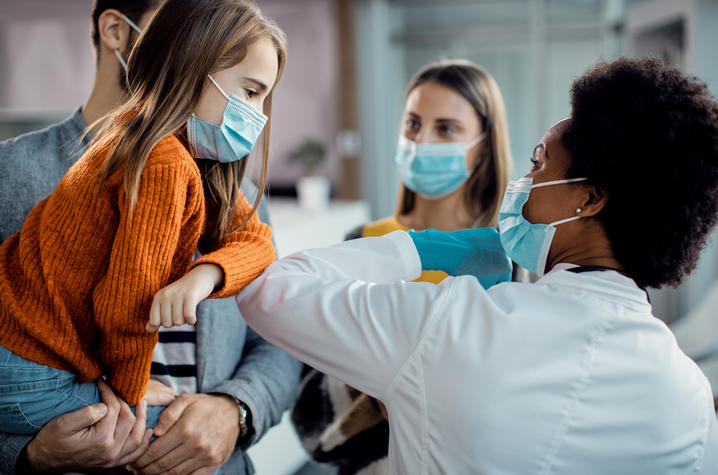COVID-19 and Children: What to Look Out For

The University of Kentucky Public Relations and Strategic Communications Office provides a weekly health column available for use and reprint by news media. This week's column is by Scottie Day, M.D., physician-in-chief at Kentucky Children’s Hospital.
LEXINGTON, Ky. (Oct. 4, 2021) — As flu season comes around and our children are going back to school, there are many concerns on how to monitor your child’s health. Not only can a common cold mimic the symptoms of COVID-19, but allergies and the flu can both have similarities as well. With school being in-person, it is crucial that we take all the necessary precautions to keep our kids safe and healthy.
At the Children’s Hospital, there has been an influx of severe or critical cases of COVID-19, meaning some require oxygen or ventilator support. Since July 30, there have been five times as many admissions for severe and critical infections of COVID-19 than there was the entirety of the pandemic up until that point. Most of these children are 12 years old or older, and not a single child that has been admitted has been immunized for COVID-19. Because the delta variant is much more infectious, more people are being infected, including young children.
Because schools have gone back in-person this year, there are many safety precautions that students and staff should follow to minimize possibility of infection. Health screenings are recommended in school systems, as well as making sure parents understand not to send children to school if they are feeling sick. Because COVID-19 shares symptoms with the common cold, flu and allergies, there is no way to be sure that your child does not have COVID-19 other than getting your child tested. If your child tests negative but is still feeling sick, it is important to continue to keep them at home so they do not infect other students or staff with whatever illness they might have.
The most effective thing you can do to protect yourselves and others is to get vaccinated. Making sure that masks are properly worn in public settings is extremely beneficial in reducing the risk of contracting or spreading COVID-19. Many are worried that masks are not safe for children to wear for long periods of time, but there is absolutely no truth behind the idea.
Many question whether virtual learning is safer for children than allowing them to return to school. If we continue health screenings and get our children tested if they are feeling sick, we should be able to provide a safe and stable environment for our children’s learning experience.
To encourage the safe meeting of in-person classes, it is important that more children from the ages of 12-17 get vaccinated. Currently, only 47% of children in this age group are fully vaccinated. If we continue doing health screenings and increase the vaccination percentage in our total population, we can begin to get back to our normal routine.
As the state’s flagship, land-grant institution, the University of Kentucky exists to advance the Commonwealth. We do that by preparing the next generation of leaders — placing students at the heart of everything we do — and transforming the lives of Kentuckians through education, research and creative work, service and health care. We pride ourselves on being a catalyst for breakthroughs and a force for healing, a place where ingenuity unfolds. It's all made possible by our people — visionaries, disruptors and pioneers — who make up 200 academic programs, a $476.5 million research and development enterprise and a world-class medical center, all on one campus.




